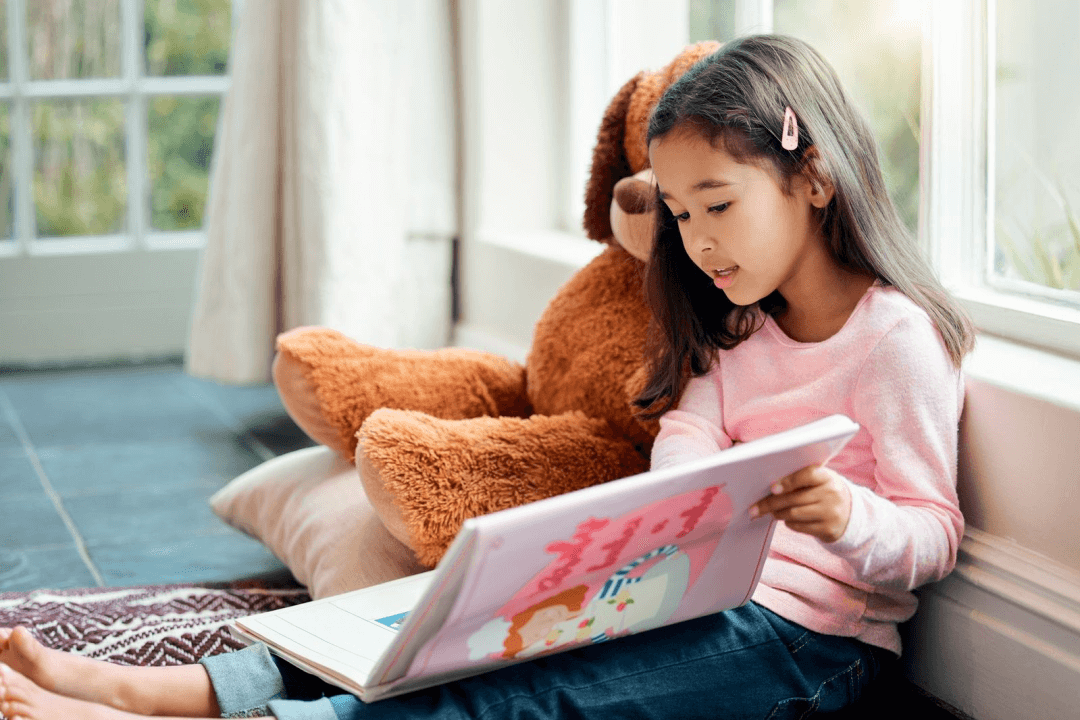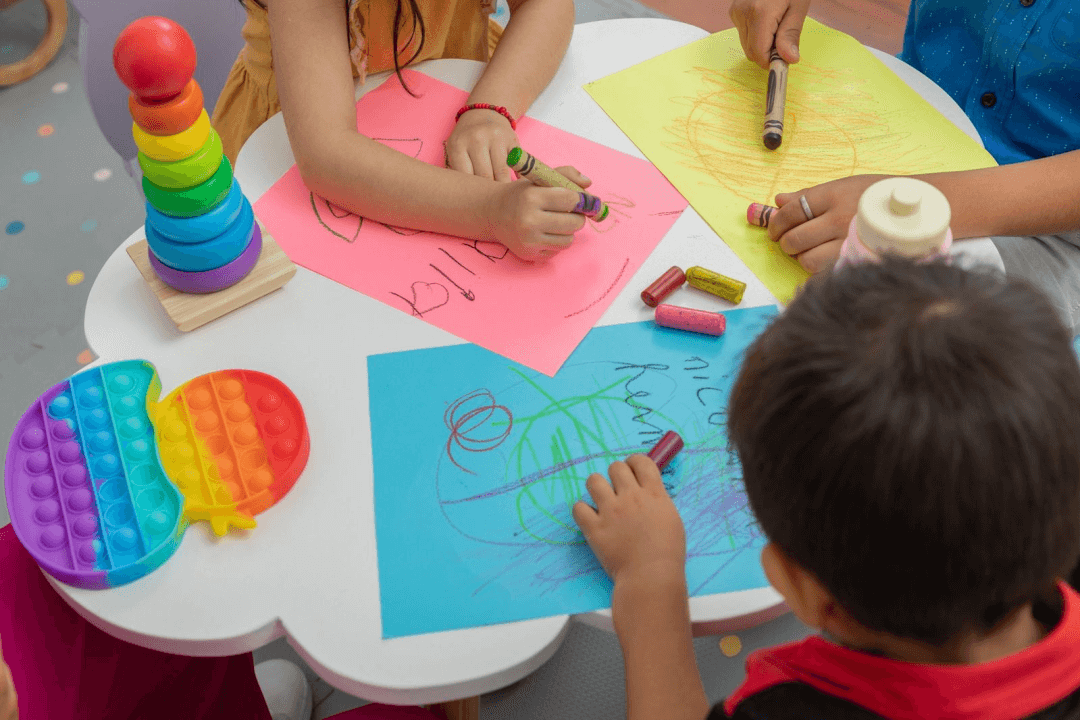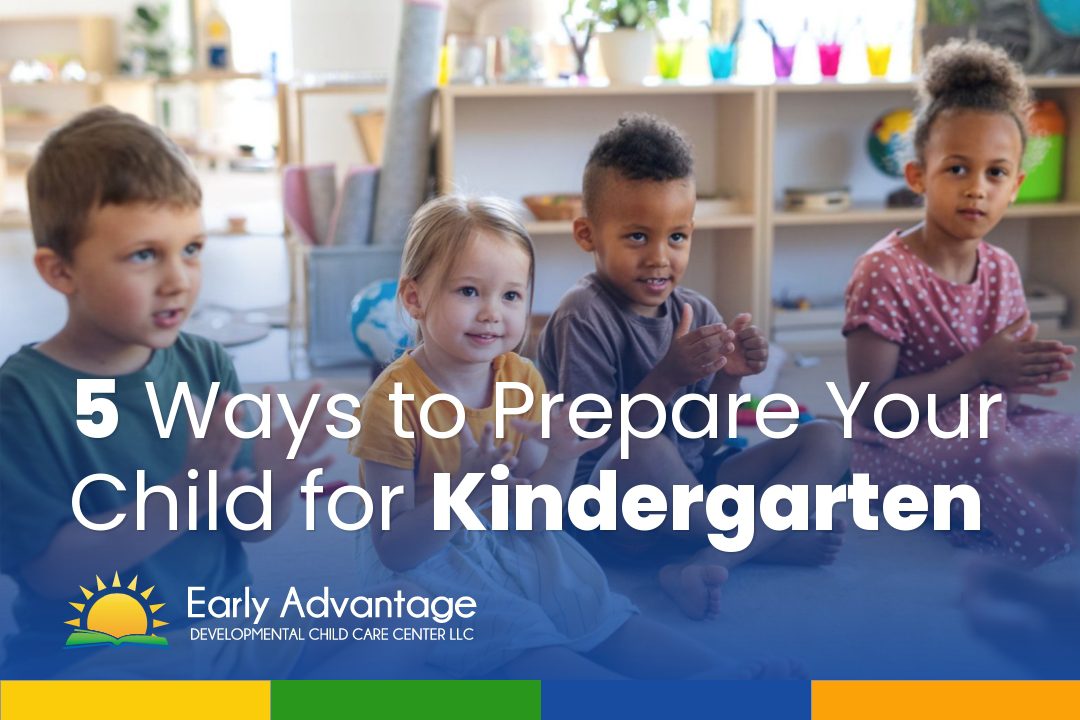Starting school can be a big step for young children and their parents. Knowing you have done your best to prepare your child for kindergarten can significantly help everyone involved. Being ready for kindergarten requires mental preparation, as well as physical and emotional readiness.
Here are five ways to help ensure your child is as prepared as possible for their big day.
From Preschool to Primary – How Do I Get My Kindergartner Ready for School?
Preparing your child for the exciting milestone of starting kindergarten is a significant step toward their academic and social development. As parents, we play a vital role in ensuring our child is ready and confident as they enter school. By focusing on kindergarten readiness, fostering academic and social skills, establishing routines, and cultivating a positive mindset, we can help our children have a smooth transition and a successful start to their school years.

Fostering academic skills in your child is one way to prepare them for Kindergarten
Step 1: Foster Academic Skills and Readiness
To prepare your child for kindergarten:
- Focus on developing their academic skills and readiness.
- Engage them in activities that promote language skills, such as reading and storytelling.
- Encourage them to practice fine motor skills through drawing, coloring, and writing.
- Use math-related games and puzzles to introduce basic numeracy concepts.
By providing a foundation in these academic areas, your child will feel more prepared and confident as they enter school.
Step 2: Establish Daily Routines and Independence
Kindergarten often follows a structured daily routine. You can help your child prepare for their first day of kindergarten by establishing similar habits at home. To do this, you can help your child practice morning routines, from getting dressed and packing their backpack to having a healthy breakfast. Teach them to listen and follow two-step directions to foster independence and self-control. By establishing consistent routines, your child will become familiar with school expectations and develop a sense of responsibility.
Step 3: Focus on Building Friendships
For many children, kindergarten is an exciting time to make new friends and learn cooperation. To help with this, you can encourage your child to engage in cooperative play and group activities with other children. Teach them how to express their feelings and resolve conflicts peacefully. You can also help them by encouraging your child to foster empathy and to be inclusive and kind to others. By nurturing these skills, your child will have a positive and enjoyable experience in kindergarten.

Encourage Curiosity and a Love for Learning
Step 4: Encourage Curiosity and a Love for Learning
Instilling a curiosity and a love for learning is another way to prepare your child for kindergarten. If you’re looking for ways to do this, encourage your child to ask questions and explore their interests. Activities you can do together include visiting the library and allowing them to choose books that spark their curiosity, as well as engaging in hands-on learning activities that involve experimenting, problem-solving, and creative thinking. By fostering a love for learning, your child will approach kindergarten with enthusiasm and a thirst for knowledge.
Step 5: Communicate with the Kindergarten Teacher and Discuss Expectations
To help ensure a smooth transition and ease any worries, communicate with your child’s kindergarten teacher. When speaking with them, discuss their expectations for the school year, the curriculum, classroom rules, and any specific preparation they may recommend. During this conversation, you can also share information about your child’s strengths, interests, and any concerns you may have. By establishing a partnership with the teacher, you can work together to support your child’s learning and address individual needs.
How Do I Know if My Child is Ready for Kindergarten?
If you’re wondering if your child is ready for their first day of school, several factors can help determine if they are ready. Some key indicators include:
1. Cognitive Development: Your child should have developed basic cognitive skills such as understanding and following simple instructions and recognizing and naming basic shapes, colors, letters, and numbers.
2. Language and Communication Skills: They should have good communication skills, including being able to speak clearly, communicate their needs and ideas, and follow conversations.
3. Social and Emotional Development: Your child should demonstrate the ability to interact positively with peers and adults, take turns, share, and follow basic social rules. They should also demonstrate a level of independence in basic self-care tasks.
4. Physical Readiness: Motor skills such as running, jumping, hopping, cutting with scissors, and holding a pencil or crayon should be somewhat developed.
5. Interest in Learning: Observe if your child shows interest in learning new things, enjoys books, can sit and listen during storytime, and demonstrates curiosity about the world.
Remember, every child’s readiness for kindergarten can vary, and it’s essential to consider their strengths and areas of improvement. If you’re unsure about their readiness, consult with their preschool teacher or pediatrician, or speak to the kindergarten staff to discuss your concerns and assess your child’s preparedness.

Preparing for Kindergarten can include many things, including fostering relationships.
A New Horizon
Preparing your child for kindergarten can involve many things, from fostering academic readiness and developing social skills to establishing routines and nurturing a love for learning.
By focusing on these areas, you can help prepare your child for school, boost their confidence, and help them be prepared and excited for the next step of their educational journey. Remember, as parents, we have the privilege of nurturing their growth and providing a solid foundation as they prepare for kindergarten.

